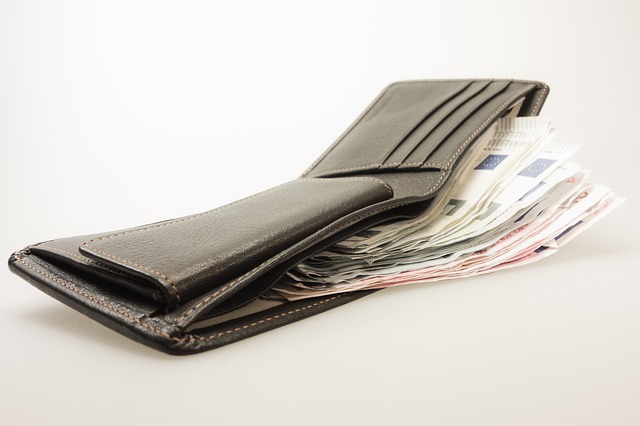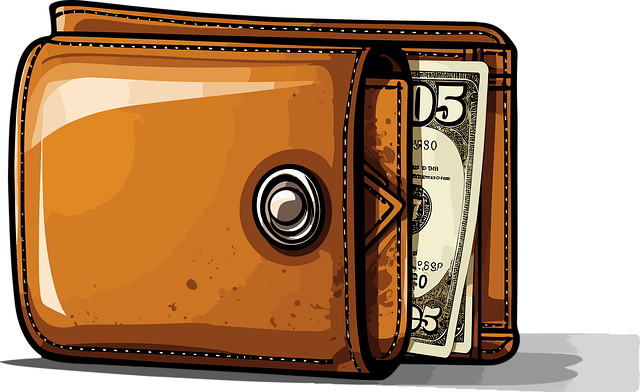The Ultimate Guide to Crypto Wallets
Author: Jameson Richman Expert
Published On: 2025-01-26
Prepared by Jameson Richman and our team of experts with over a decade of experience in cryptocurrency and digital asset analysis. Learn more about us.
The world of cryptocurrency is rapidly evolving, and as more individuals and businesses immerse themselves in this digital financial landscape, the need for secure storage solutions becomes increasingly critical. Enter crypto wallets — a fundamental tool for anyone who interacts with cryptocurrencies. In this comprehensive guide, we will explore the various types of crypto wallets, their features, security practices, and much more.

What is a Crypto Wallet?
A crypto wallet is a digital tool that allows users to store, manage, and interact with their cryptocurrency holdings. It doesn’t physically store the cryptocurrency but instead holds the private keys needed to access your crypto assets on the blockchain. These keys are crucial since they authorize your transactions and prove ownership of your coins.
Types of Crypto Wallets
Understanding the different types of crypto wallets is essential for choosing the right one for your needs. Broadly, wallets can be categorized into two main types: hot wallets and cold wallets.
Hot Wallets
Hot wallets are connected to the internet, making them convenient for frequent transactions. They allow users to easily access their cryptocurrencies, but this also makes them more vulnerable to hacking.
- Web Wallets: Accessible through a browser, web wallets are one of the most convenient options. An example is Binance, one of the largest and most secure cryptocurrency exchanges where you can create an account and use their wallet to store your assets. You can register at Binance here.
- Mobile Wallets: These are apps that can be downloaded to your smartphone. They offer a good balance of security and convenience. Examples include Trust Wallet and Coinomi.
- Desktop Wallets: Software applications installed on your computer, allowing you to control your private keys. While they are more secure than web wallets, they are still exposed to malware attacks.
Cold Wallets
Cold wallets are not connected to the internet, which makes them a safer option for long-term storage. They are less convenient for day-to-day transactions but provide enhanced security.
- Hardware Wallets: Physical devices that store your private keys offline. Popular examples include Ledger Nano S and Trezor.
- Paper Wallets: A physical printout of your public and private keys. This method can be secure but poses risks related to loss or damage.
Choosing the Right Wallet
When selecting a crypto wallet, consider the following factors:
- Security: Evaluate the wallet's security features. For instance, hardware wallets are generally considered the safest option.
- Usability: Choose a wallet that you find easy to navigate and use.
- Compatibility: Ensure the wallet supports the cryptocurrency you plan to store.
- Backup and Recovery: Look for wallets that provide clear backup and recovery options.

Setting Up Your Wallet
Setting up a crypto wallet usually involves the following steps:
- Download or Purchase: For software wallets, download from the official website or app store. For hardware wallets, buy from reputable manufacturers.
- Create a New Wallet: Follow the prompts to create a new wallet. It may require you to generate a seed phrase; this phrase is essential for recovery.
- Secure Your Private Keys: Store your private keys safely. If someone gains access to them, they can control your assets.
- Fund Your Wallet: You can transfer cryptocurrencies from an exchange or other wallets into your new wallet.
Best Practices for Wallet Security
Security is paramount when dealing with cryptocurrencies. Here are some best practices to keep your crypto wallet secure:
- Use Two-Factor Authentication: Always enable 2FA for added security on wallets and exchanges.
- Keep Software Up to Date: Ensure your wallet software is always up-to-date to benefit from the latest security patches.
- Be Wary of Phishing Scams: Always verify links and be cautious of unsolicited messages asking for your private keys.
- Back Up Your Wallet: Regularly back up your wallet data and store it in a secure location.
The Future of Crypto Wallets
As cryptocurrencies continue to gain traction, the technology behind crypto wallets is evolving. Here are some emerging trends:
- Integration with Decentralized Finance (DeFi): Many wallets are incorporating DeFi features, allowing users to lend, borrow, and earn interest on their assets.
- Increased Focus on User Experience: Enhancements in UI/UX design are making wallets easier to use for beginners.
- Enhanced Security Measures: New technological advancements, such as biometric authentication, will likely become standard in wallet security.

Conclusion
Understanding crypto wallets is essential for anyone looking to venture into the world of cryptocurrencies. Whether you're a casual investor or a seasoned trader, having a reliable and secure wallet is crucial for managing your assets. Take the time to research and choose the right wallet that meets your needs, and always prioritize security to protect your investments.
If you're looking for a secure platform to trade and hold your cryptocurrencies, consider signing up for Binance. Create an account to start your crypto journey at Binance here.